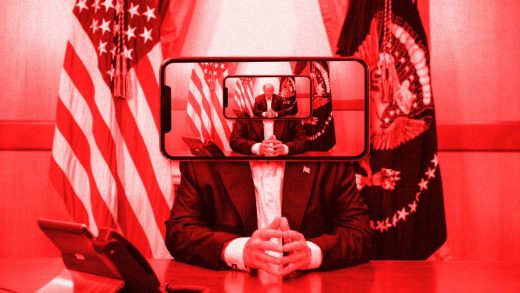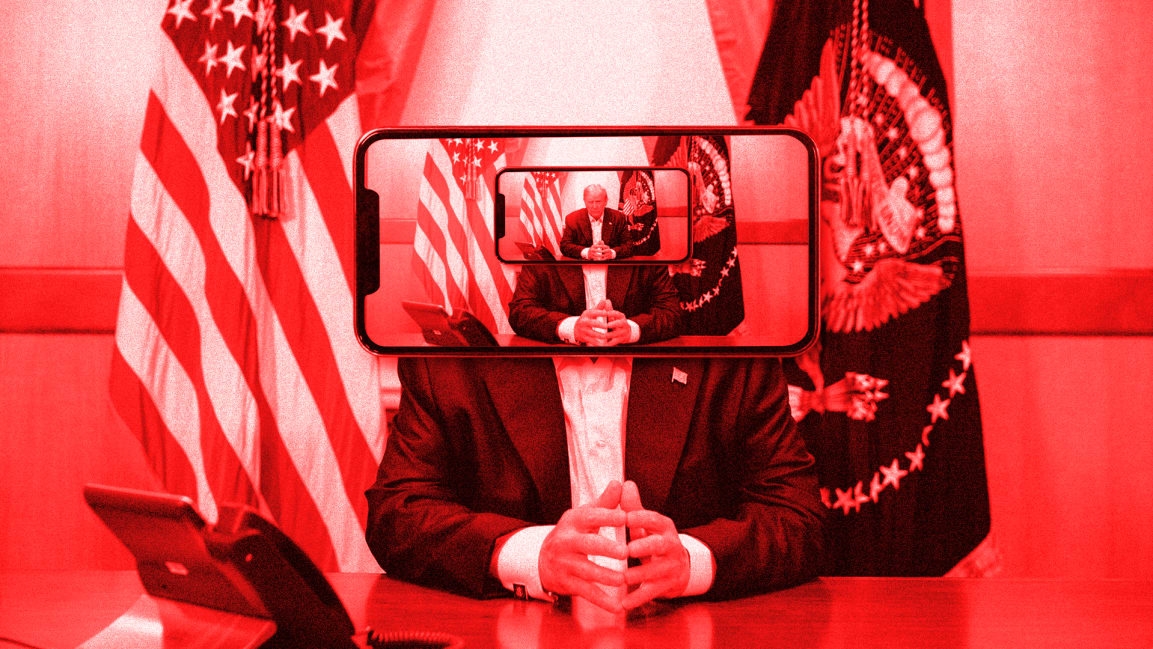A Trump social network could get sued out of existence
Donald Trump is “holding high-powered meetings” to start his own social network in the next two to three months, according to the ex-president’s adviser Jason Miller, who appeared on the Fox News show Media Buzz on Sunday. The former president was, of course, booted from Twitter and suspended from YouTube and Facebook (pending review), after spewing misinformation about the 2020 election and, arguably, inciting a riot at the Capitol on January 6.
Sunday night, many on the right were joyous about the idea of a Trump social networking site. “BarYohai,” a commenter on FoxNews.com, summed up the sentiment nicely:
This is how the free market works. People “vote” with their wallets. Trump’s social media platform will be widely successful and, additionally, it will create an incentive for people to close their Twitter (and perhaps even Facebook) accounts. Amazon and other self-appointed “speech police” will also feel the economic pain as dissatisfied customers seek substitutes for, and then “cancel” the “cancel culture” businesses.
But running a social network is hard, as Trump may soon find out if Miller is right. People post untrue, defamatory, threatening, and conspiratorial things on social networks, requiring a major investment in content moderation staff and systems. It might get even harder this year if Congress decides to scale back or repeal Section 230 of the Communications Decency Act, which shields social networks from civil suits arising from hosting (or removing) user content.
Actually, repealing Section 230 was one of Trump’s go-to threats against the Big Tech companies that run social networks, especially Twitter. Days after Twitter began applying truth labels to his tweets, Trump released an executive order directing Congress to remove the 230 protections.
#BREAKING: President Trump signs executive order strip liability protection from companies that censure content: “Companies that engage in censoring or any political conduct will not be able to keep their liability shield.” https://t.co/D5ooUw1fNz pic.twitter.com/FHs7kUvJH1
— The Hill (@thehill) May 28, 2020
Many of Trump’s executive orders had little effect, but that one spurred some of his GOP devotees in Congress, such as Missouri Senator Josh Hawley, to introduce bills restricting the Section 230 protections. Hawley’s 2019 Ending Support for Internet Censorship Act reserves Section 230 protections only for content removals the social network can prove were “politically neutral.” A House bill from Arizona Republican Paul Gosar proposed revoking Section 230’s legal exemptions for social networks that remove content they deem “objectionable.” Other bills condition the legal protections on more transparent content monitoring and faster removal of toxic content.
Reforming Section 230 is one of the few issues in Congress that’s garnered support from both Democrats and Republicans, if for different reasons. President Joe Biden has expressed support for completely repealing the law. Democratic Senators Mark Warner of Virginia, Mazie Hirono of Hawaii and Amy Klobuchar of Minnesota introduced a bill in February that would reduce Section 230 protections for social media content that can cause real-world harm, such as discrimination or harassment. House Democrats are now debating their own approach to reforming Section 230.
Whatever happens to Section 230 this year, a Trump social network would have to play by those rules, just like every other social media site. Judging by the posts of Trump supporters on right-wing social networks such as Gab and Parler, the possibility of legal exposure could be considerable. And more lawsuits is something Trump probably doesn’t need right now.
(36)



